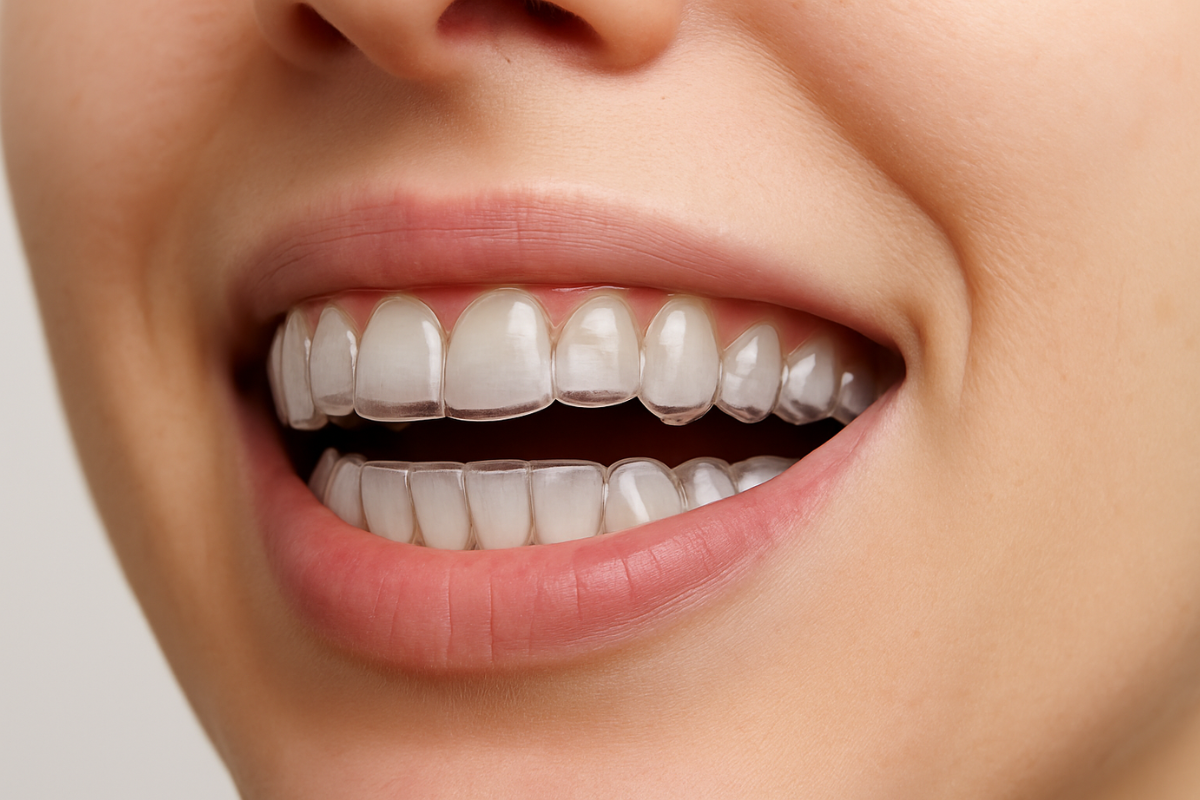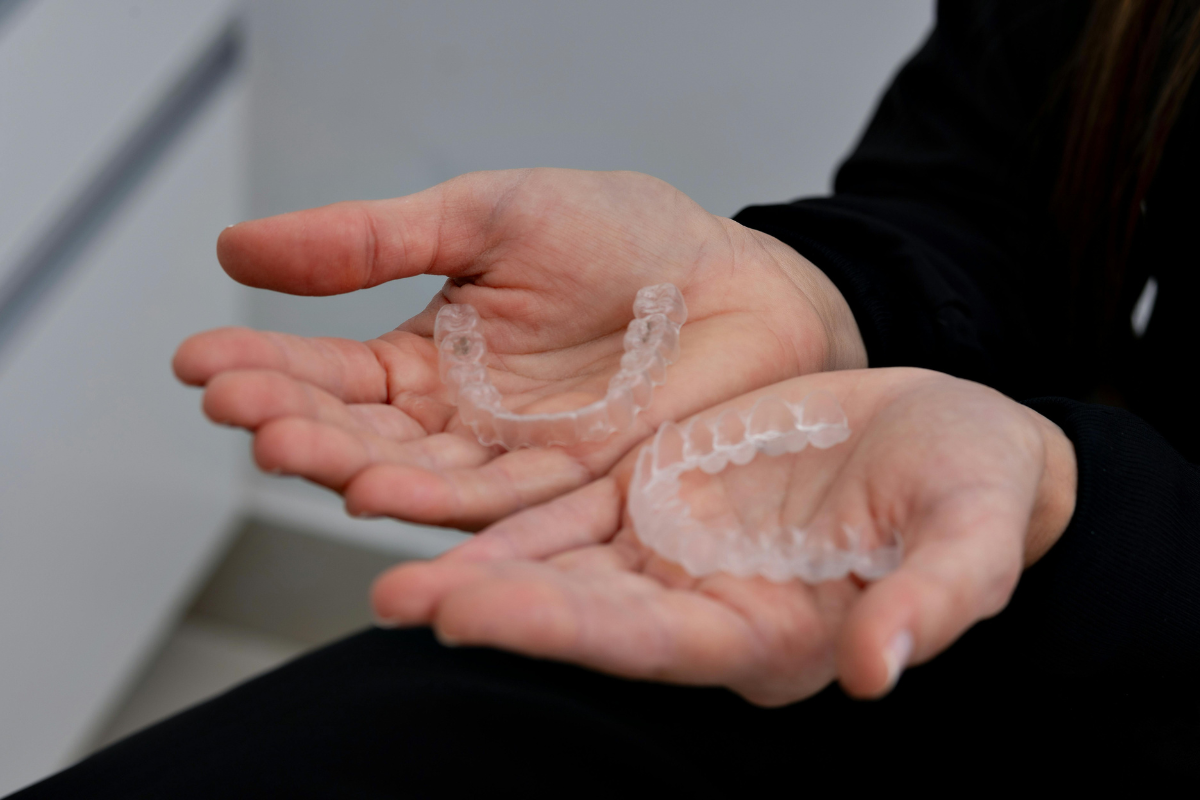News From The House
Your go-to guide to all things happening at The House of Smile Design – from personal smile design stories to dental advice, trends and common questions answered by our experts.

Are veneers permanent? Understanding the longevity of your smile
| Published Date: | 16 June 2025 |
| Category: | Veneers |
Veneers are a popular choice in cosmetic dentistry. They help improve the appearance of teeth. Veneers can quickly fix chipped edges, close small gaps, and brighten discolored teeth. They provide a natural-looking transformation.
But one question that often comes up is: Are veneers permanent?
Let’s simplify this. Whether you’re new to veneers or curious about long-term results, we’ll explain what to expect. This article looks at how long veneers last, what impacts their lifespan, and how to care for them. This way, you can keep your smile looking great.
What are veneers?
Veneers are thin shells, usually made of porcelain or composite resin. These shells bond to the front of your teeth. They’re made to fit your natural teeth in shape, size, and color. This gives you a smooth and better look.
- Porcelain veneers are more stain-resistant and durable, often lasting longer.
- Composite veneers are quicker to apply and more affordable, but they tend to wear down sooner.
Veneers, whether porcelain or composite, need some prep work. This usually means reshaping the natural tooth before placement.
Are veneers permanent? The honest answer is no.
In simple terms, veneers are not considered permanent, but they are irreversible. Your dentist typically takes off a bit of enamel from your teeth before putting on the veneer. When you’re finished, you’ll need some kind of covering for those teeth. This could be a new set of veneers or another type of restoration.
However, they are designed to be long-lasting. On average:
- Porcelain veneers can last anywhere from 10 to 15 years, sometimes even 20, with proper care.
- Composite veneers typically last about 5 to 7 years. After that, they may need repairs or replacements.
Factors that affect the longevity of veneers.
Several things influence how long your veneers will hold up. Some are within your control, and others depend on natural wear and tear.
- Oral hygiene habits – Brushing twice a day, flossing, and regular dental checkups go a long way.
- Biting and chewing habits – If you grind your teeth or chew on hard objects, you risk damage.
- Diet choices – Avoid too many acidic foods and drinks. This keeps your natural teeth and veneers safe.
- Material used – Porcelain typically holds up better than composite in the long run.
- Quality of dental work – A talented dentist and top-notch materials are a must. They can extend the life of your veneers.
How can you make your veneers last longer?
Veneers won’t last forever, but proper care can really extend their lifespan. Some practical tips include:
- Don’t use your teeth as tools to open packets or to bite your nails.
- Wear a night guard if you have a habit of grinding your teeth.
- Stick to non-abrasive toothpaste and a soft-bristled brush.
- Schedule regular dental visits to catch small issues before they become big ones.
- Limit habits like smoking or drinking too much coffee, red wine, or cola, which can stain or wear down veneers.
When and why should you replace veneers?
Even the most well-maintained veneers won’t last forever. Daily use and changes in your mouth can impact the appearance and function of your veneers over time.
Even though they are strong and durable, some signs show that it may be time to replace them. Paying attention to these early signs helps you avoid bigger dental issues later.
- Chips or cracks – Small damages can compromise both appearance and strength.
- Discoloration around the edges – This can suggest wear, staining, or gum changes.
- Loose fit or movement – Indicates that the bond between the veneer and the tooth is weakening.
- Gum recession – When gums pull back, veneer margins become visible and less aesthetic.
- Decay under the veneer – If the underlying tooth gets damaged, replacement becomes necessary.
- Uncomfortable bite or sensitivity – These may point to shifting or deterioration.
The good news? Replacing veneers is a fairly straightforward process. Your dentist will remove the old ones and take fresh impressions to create and bond new ones.
Final thoughts
Veneers aren’t truly permanent, but with good care, they can last a decade or longer. They can greatly improve your smile for years. Know that this process is a lifelong commitment due to changes in your natural teeth.
If you’re considering veneers or need to replace your old ones, talk to your dentist. They’ll assess your unique case and help you make the right call for your smile and your long-term dental health.
Got more questions about veneers or cosmetic dentistry? – Drop us a message or book a consultation—we’re here to help you make confident choices for your smile.
Similar Articles
Affiliates











Follow @thehouseofsmiledesign


Aesthetic Function Structure Biology


Copyright 2026 HoSD | All rights reserved


